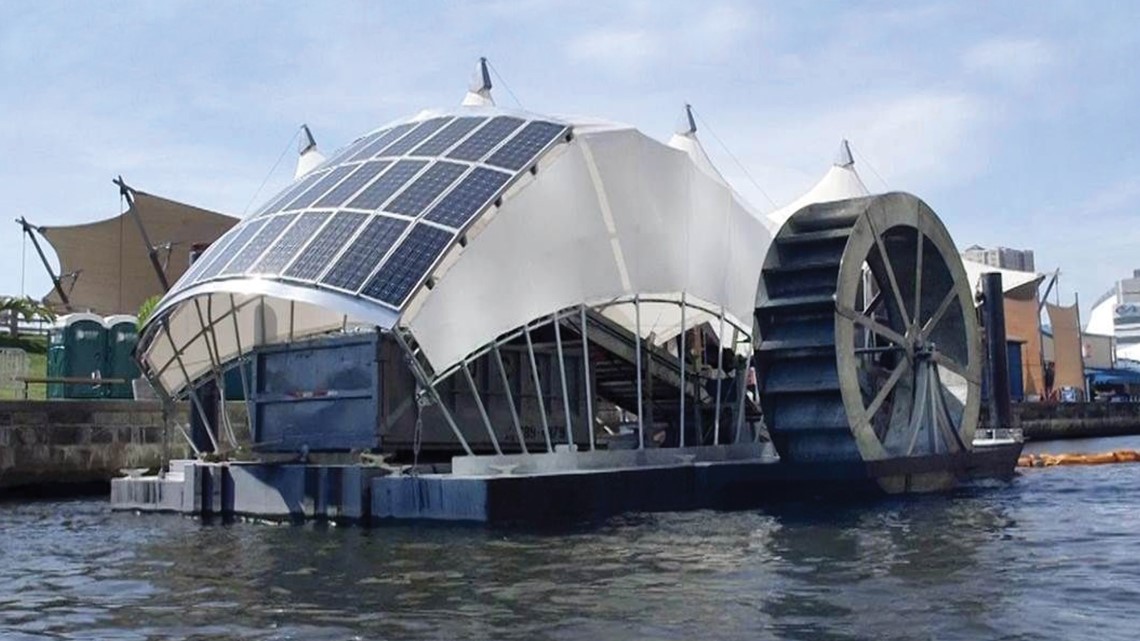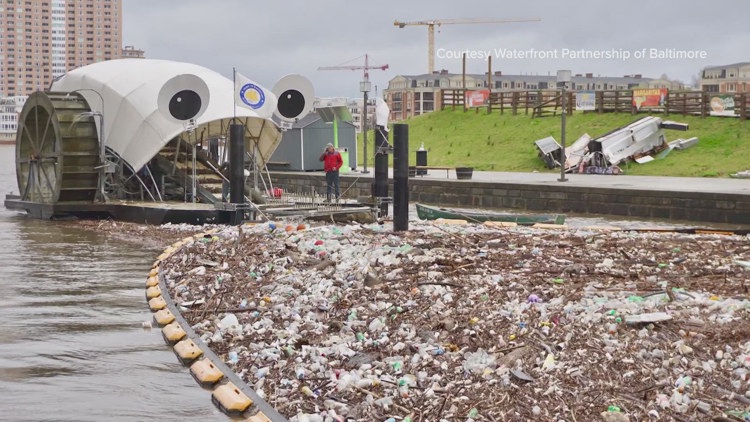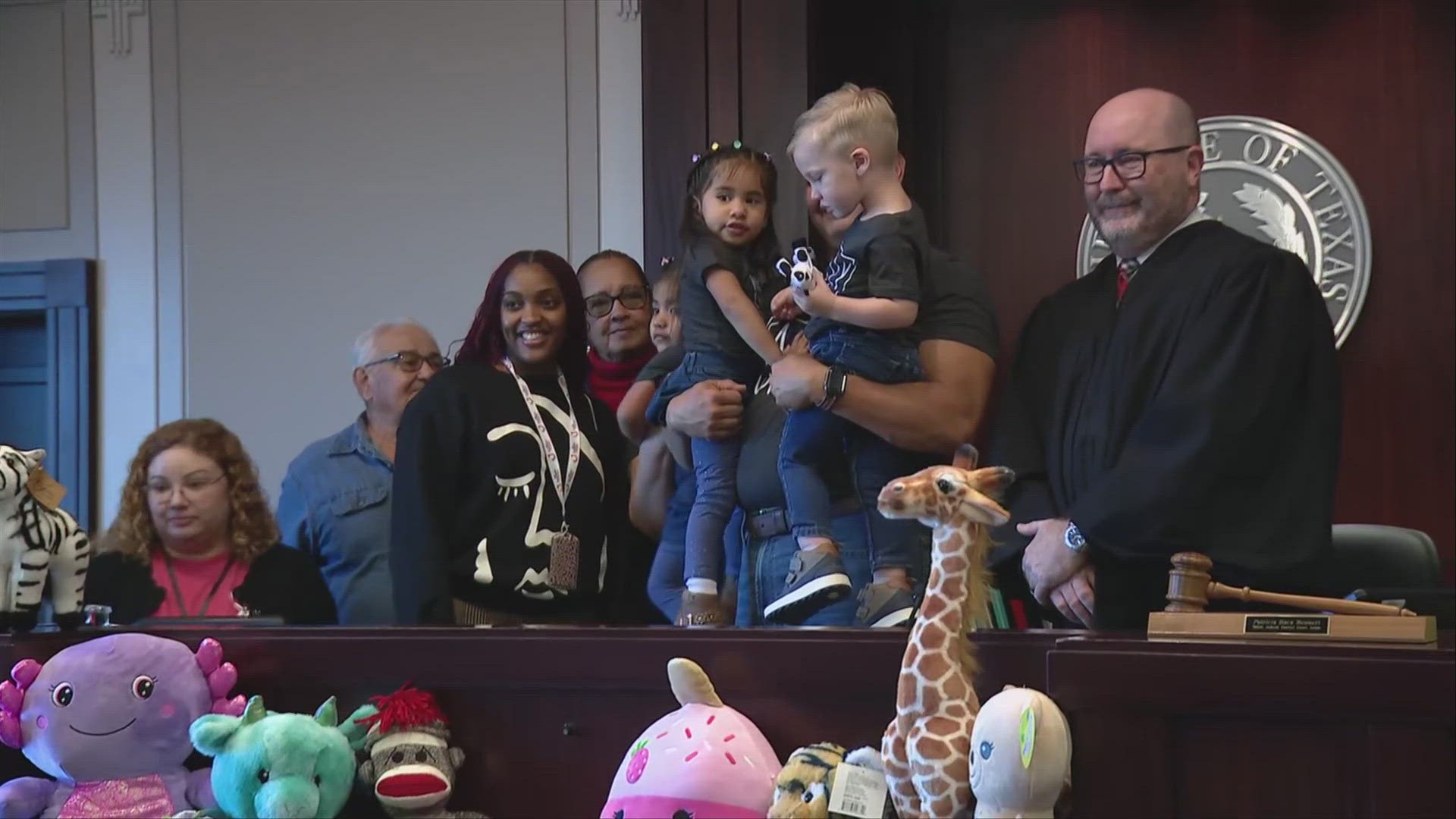FORT WORTH, Texas — A multi-year effort to fund the construction of a waterwheel is on pause after the City of Fort Worth struggled to find enough funding to pay for the project.
It’s safe to swim in the parts of the Trinity River that run through Fort Worth. The same can’t be said for Dallas, downstream of Fort Worth. Local officials want to maintain the accessibility of one beauty of the river by reducing the amount of litter flowing through the city’s waterways every day.
The city and Tarrant Regional Water District host trash cleanups, install water goats and increase awareness of litter prevention.
The city’s most ambitious anti-litter campaign is a $1.9 million waterwheel, which would remove trash from the river using renewable energy. The effort to fund the wheel began in 2021, and the project was put on pause last week.
“We simply just do not have enough project funding at this time to award a contract,” Cody Whittenburg, Fort Worth’s environmental services director, said. “The project is put on pause until we can consider some other funding sources that may come in the form of grants or come in the form of other large donations.”
The waterwheel can capture up to 50,000 pounds of litter and debris per day, according to Whittenburg. Capturing the waste would prevent trash from flowing further downstream, improve the looks of Fort Worth waterways and improve the ecosystem for fish and wildlife, he added.


The city is about $500,000 short of what it needs to fund the project. City officials attribute the gap to inflation – higher cost of materials and labor compared with initial projections. The city previously planned to contribute $350,000 to the project, matched by the same amount of funding from the Tarrant Regional Water District. Over sixteen private donors committed $640,000 to the project.
The private funding contributed to the project will be returned to donors unless they choose to donate money to other litter initiatives through the Keep Fort Worth Beautiful program. The city uses that program to fund litter pickup events and other litter abatement technology.
Streams & Valleys, the nonprofit arm of the Tarrant Regional Water District, collected some of the private donations on behalf of the waterwheel project. Stacey Pierce, executive director of the nonprofit, believes there is still an opportunity to fund the wheel.
“Parks need it, the river needs it, environmental efforts need it,” Pierce said.
Often, local government depends on private partners to make big, ambitious projects happen, Pierce said. She hopes the project being placed on pause will prompt private businesses to consider contributing to municipal projects more regularly.
The waterwheel, with its unique design and marketing potential, is ripe for corporate sponsorship and naming rights, Pierce said. Donors can purchase that privilege for the price of $400,000, according to the waterwheel’s donation page. If the project moves forward, Fort Worth could be home to the sixth waterwheel in the world.
Baltimore has four waterwheels. Its first, known as Mr. Trash Wheel, is marketed as a “part-time celebrity. Full time trash wheel.” Beyond collecting trash, Baltimore’s Wheels creates educational opportunities and aims to influence public policy.
“I sure hope that we can take another stab at it and maybe be successful the second time,” Pierce said. “I still think there's no better picture for environmental education than the waterwheel and sometimes stuff like that needs a good visual.”
Borth Fort Worth and the Tarrant Regional Water District said they are committed to reallocating $350,00 to the project if private funding becomes available.



